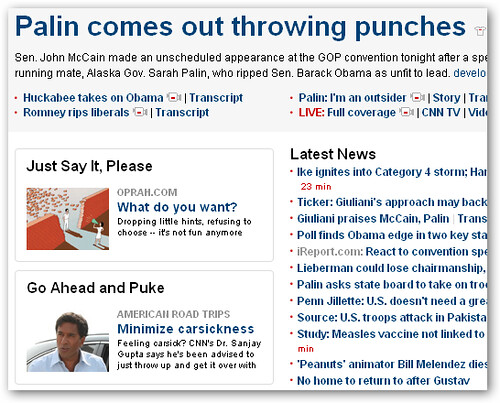One of the issues that I’ve been following fairly closely, is the concept of network neutrality. What is it? Wikipedia defines it as:
Network neutrality (equivalently net neutrality, Internet neutrality or simply NN) is a principle that is applied to residential broadband networks, and potentially to all networks. A neutral broadband network is one that is free of restrictions on the kinds of equipment that may be attached, on the modes of communication allowed, which does not restrict content, sites or platforms, and where communication is not unreasonably degraded by other communication streams. –SOURCE: Wikipedia entry for Network Neutrality
While there have been laws introduced to make network neutrality “official,” to date it’s just been a business concept. Highly contested, many big-names have come out in favor of net neutrality including Google, Yahoo! and Microsoft. Recently, though, many telecom companies are testing the waters a little more fervently these days by putting caps on downloads. For example, Comcast will Cap Data Transfers at 250 GB October 1st and, as this YouTube! vlogger reported: TimeWarner is Experimenting with Capping Internet Usage in Texas. (About 2 minutes in.) Here’s a link to an article about Time Warner metering internet usage in Texas. Additionally, small ISP provider Frontier is toying with a 5 GB download cap.
What does this mean? It means that the concept of network neutrality is alive and well not only in Congress, but in our everyday lives affecting how we access the internet for email, gaming, blogging, banking, etc.
I hope that you will take time to read up on both sides of the issue, and whether you’re for or against it — realize that network neutrality is a topic that isn’t going away any time soon.
Save the Internet – a website that is for legalizing Network Neutrality
Hands Off the Internet – a website that is against legalizing Network Neutrality

